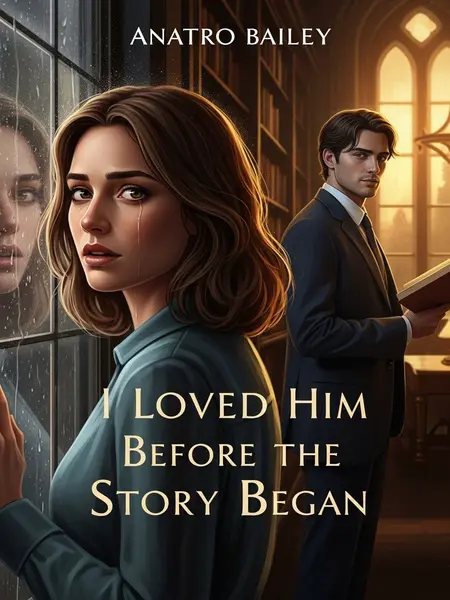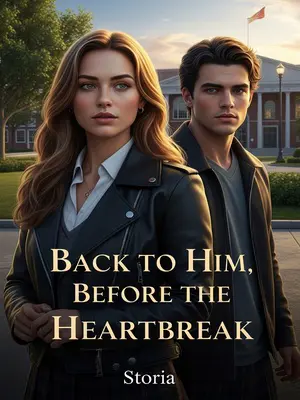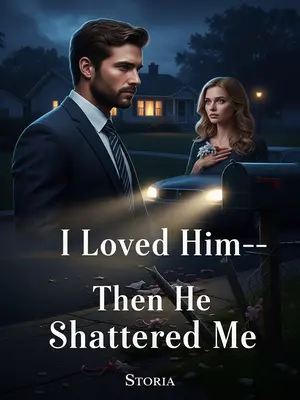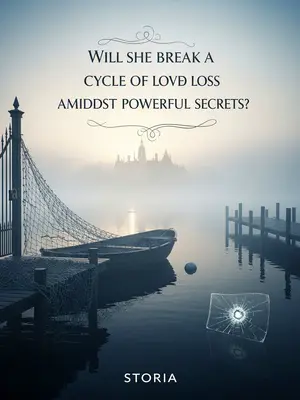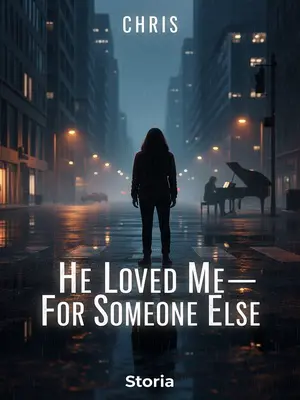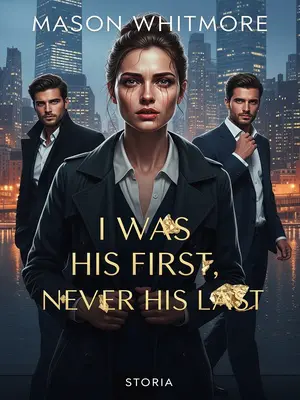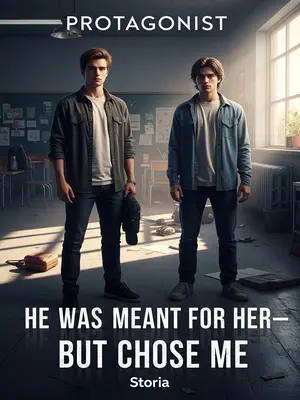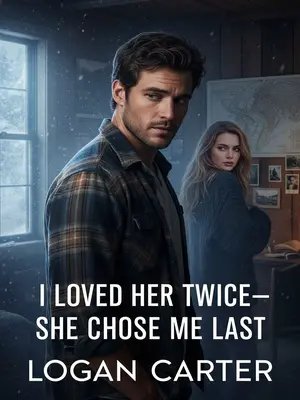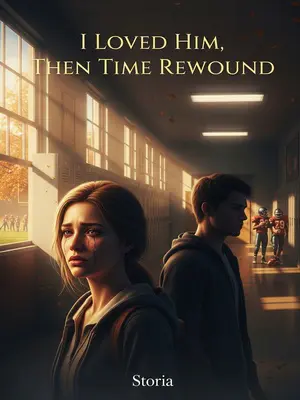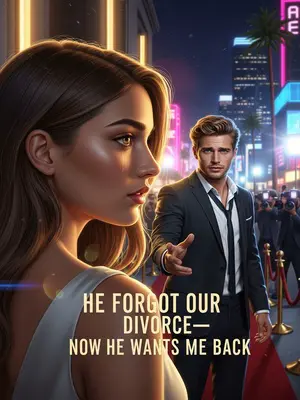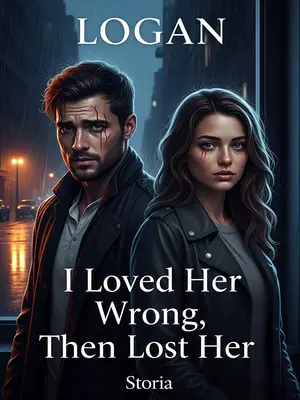Chapter 4: Poisoned Promises
Living with Julian in the family estate, I cherished every day. Not out of worry, but because in my life, I'd always felt lonely. The empty spaces in my heart finally felt full.
But since this marriage began, I never felt lonely again. Not once.
Every morning when I woke and saw him, I couldn't help but hug him. In that moment, I always felt happy. The world felt right.
I told him, "You're the best husband in the world." Sometimes I whispered it, sometimes I said it out loud, just to see him smile.
No matter how many times he heard this praise—even if I said it a hundred times—he would still blush. His ears would turn pink, and I'd laugh at his embarrassment.
I laughed at his shyness. He would lower his head, kiss my forehead, then my ear. Every touch felt like a promise.
We had planned to travel the following spring, but getting out of family business is way harder than getting in. The things he had to do seemed endless, stretching out before us.
Many times, I sat by his side, watching his exhaustion, knowing he was busy giving up—his years of effort and ideals breaking down bit by bit. My heart ached for him.
Several times, my heart hurt so much I almost wanted to give in. I wanted to tell him it was okay, that he didn't have to give up everything.
He could always sense my mood. I never had to say a word.
By the lamplight, he smiled at me, the glow making his eyes shine. The room felt warm and safe.
He spread paper on his desk, held my hand, and drew the travel routes we had talked about so many times, marking the cities we'd visit, the beautiful scenery we imagined, one by one. I could almost see us there.
Summer, autumn, winter, then spring again—so it went. Our plans were delayed for two years, those drawings filling a drawer. Each map was a little hope tucked away.
I never blamed him, but he always felt guilty, always searching the world for rare and curious gifts for me. His way of saying sorry without words.
I looked at them and teased him, "Julian, is this your compensation?"
He would correct me, "No, Bailey, this is your gift."
He gave me many things—precious trinkets, ingenious hairpins, and other surprises. Each one made me smile.
One summer night, he came home late from work, carefully cupping his sleeves. As soon as he came in, he mysteriously turned off the lamp, pulled me onto the bed in the dim room, and dropped the bed curtains. My curiosity piqued.
He sat close to me, slowly opened his sleeves, and tiny lights floated up. I gasped in delight.
Fireflies.
We seemed to be sitting among the stars. Surrounded by them, I couldn't help but kiss him—his lips cool and soft, like grass kissing clear water under the sun. My heart felt light.
In the dim light, his eyes looked wet. He smiled at me: "Bailey, I saw them in the garden on my way home. I thought you'd like them." My chest ached with affection.
On New Year's Eve, he told me, grinning, "Bailey, just wait. Maybe after this autumn, we'll finally get to leave."
We officially began preparations, busy every day, at night flipping through the stack of drawings again and again. Our excitement bubbled over.
We were so caught up in the future—so much so that we didn't notice that winter ended especially late that year, spring passed in a flash, and summer dragged on endlessly. The seasons blurred together.
The night before autumn, the west wind brought a long-lost chill, stirring dry grass and lighting torches in the city. I shivered, feeling something shift.
That autumn night, the next-in-line rebelled, failed, was captured alive and imprisoned, his allies all arrested. The news hit like a punch.
Autumn arrived.
An urgent call came from the company late at night. My stomach twisted with worry.
I saw him off at the door, the cold wind blowing. He seemed unaware. Only when we reached the driveway did he turn around, looking strained, and smiled to comfort me. "It's nothing, Bailey. Go rest."
He had never looked so worried. I watched him leave, fallen leaves everywhere, not knowing what had happened. My chest tightened.
Though the succession plan failed, it was a heavy blow to the patriarch. I could see the strain on everyone's faces.
In recent years, the next-in-line's behavior had been improper. Father and son had many conflicts, but the patriarch never considered changing the heir. Yet the successor, plagued by self-doubt and nightmares, lost patience too early under the ambitions of the other siblings. I wondered how it would all end.
Five days later at dusk, Julian returned from the family office, looking exhausted. His shoulders sagged, his eyes rimmed with red.
He didn't know how to tell me, but I understood. I reached for his hand, squeezing it gently.
"This wasn't what you wanted," I said, trying to comfort him. "It's only early autumn, too soon for spring outings. I have enough patience. Let's wait for things to settle before we go."
"Sorry to trouble you," Julian sighed, hugging me. His voice sounded rough and tired. "Bailey."
Bailey, wait a little longer. Just a little longer. I nodded, holding on to hope.
Mid-autumn.
Family reunion dinner.
Family dinners were always elaborate, but this one was especially grand, as if to chase away the lingering coldness in the house. The tension was thick enough to cut with a knife.
In the end, the patriarch couldn't bear to cut off the son he'd loved all his life—just removed him from the will and sent him away. The air was heavy with unspoken words.
He was once high-spirited, now just an old man—fragile, sad. I felt a pang of sympathy.
Victoria, his favorite daughter, had stayed with him since the incident. Today, she sat by his side at the dinner. She was always sweet, now deliberately cheering him up. With her liveliness, the patriarch managed to lift his spirits, if only a little.
The rest, perhaps, each had their own thoughts, but on the surface, all was cordial. I wondered what secrets simmered beneath the politeness.
This harmonious family, all the dazzling things—I looked at them and felt sentimental, my mind wandering. Faced with the dishes, I had no appetite. I poked at my food, lost in thought.
Julian sat beside me. Seeing this, he passed a plate of dessert from his table.
"Try this pumpkin pie," he said gently. "Around here, it's the kitchen's specialty in autumn."
Victoria happened to see this and deliberately joked, pointing at us and acting spoiled to her father. "Look, no wonder Dad can't bear to let me go. Now I feel hungry too—where can I find someone to share food with me?"
"Look at this girl, I've spoiled her into a sharp tongue." The patriarch chuckled. "If you keep on like this, you'll never find a good husband, and you'll blame me!"
He picked a piece of cornbread and put it on her plate. "As if I could ever do without you. Take it, eat it, and zip your lips."
Victoria playfully pouted a few words, making her father tap her forehead. She covered her head, smiling as she ate the bread. I couldn't help but smile at their banter.
Thanks to her, the dinner ended smoothly. Relief washed over me.
When it ended, Victoria walked me out. So much had happened lately, we hadn't met for a long time. She seemed to have a lot to say, but didn't know where to start. I waited, giving her space.
The moon hung heavy in the sky.
"When my eldest brother was young, he would carry me up to the attic to see the moon during Thanksgiving," she said suddenly, looking up. "He was twelve that year, not yet the successor, and the moon was as low as today."
"It felt like you could reach out and take it—" she reached out. "He said, 'I'll pick the moon for you.' Such a pity."
"He was sent to Oregon. I couldn't even say goodbye. As a daughter, I had no choice. He was the successor for so many years—how many things did he have to do out of duty?"
She sighed. "Bailey, power and desire really do change a person."
The vast night, the grand gates—she was so small, waving to me. In the moonlight her face was pale as paper.
The vast night, the grand gates—she was so small, waving to me. My throat tightened.
The gates closed behind us. We left the estate. I watched her disappear, my heart heavy.
The car moved through the night. I watched the moon outside—it got lower, brighter, orange, red, so low it almost touched the ground, dazzling, dizzying, like a sting. I blinked away tears.
A strange, gorgeous moon.
I wanted to turn and call Julian, but my abdomen cramped in pain, my breath burning like fire, yet as if soaked in icy water. A knife-like ringing filled my body until I lost all strength and fell from my seat. The world spun.
The thud of hitting the floor was the last thing I heard. Everything went black.
I guess it startled Julian, who was dozing beside me. He called my name in terror, face pale, holding my shoulders. I saw him, but couldn't hear what he was saying. My vision blurred.
I wanted to speak, but darkness swallowed me. I let go.
I seemed to fall into a bottomless dream.
In the darkness, there was no direction—like drifting in the universe, dead silent, no sense of time passing. I floated, weightless.
Sometimes I felt I was falling—the weightlessness of falling. I could hear people talking, but what they said was chaotic. I tried to focus, but the words slipped away.
More often, I was floating upward, seeing a faint ring of light above. The closer I got, the colder I felt—the light here was cold, like the refraction of ice. I shivered.
When I floated highest, the light was just a centimeter away, but we missed each other. I sank down again, never rising. Frustration gnawed at me.
I began to feel the pain in my body, hot wetness in my palms. The voices still drifted, but gradually I could barely make out a few words.
"Sir... take care... pumpkin pie... third son... poison... luckily, not much was eaten... nothing can be done... pitiful... if Victoria... cornbread... sudden death that night... Dad would be devastated... third son..."
Pumpkin pie?
Third son, poison?
Victoria, what happened to Victoria?
These words floated in the air, circling me. I tried to distinguish them, but they drifted away. I tried to reach for them, but they disappeared. My heart pounded.
I sank into silence again. The world faded.
When I opened my eyes, it was midnight.
My head ached terribly. I groaned, pressing my palm to my temple.
Moonlight was snowy white, the shadows of trees scattered on the bed curtains. I stared at them for a long time, as if in another world. The room felt unfamiliar.
I tried to move, and someone was lying by my bed, holding my hand. The warmth was grounding.
Julian.
He slept lightly, his breathing soft, cheek pressed to my arm, long lashes hiding a faint blue weariness. I traced his features, my heart aching.
His brow was furrowed. I looked at him, wanted to touch his face, but couldn't bear to wake him. He looked so tired, so vulnerable.
He looked haggard, much thinner. I wanted to hold him, to promise him everything would be okay.
Under the night, the moonlight grew thicker, as if a wind had risen. The shadows of the trees gently swayed in layers. I felt a strange peace.
I sighed inwardly, my eyelids growing heavy. Sleep tugged at me.
